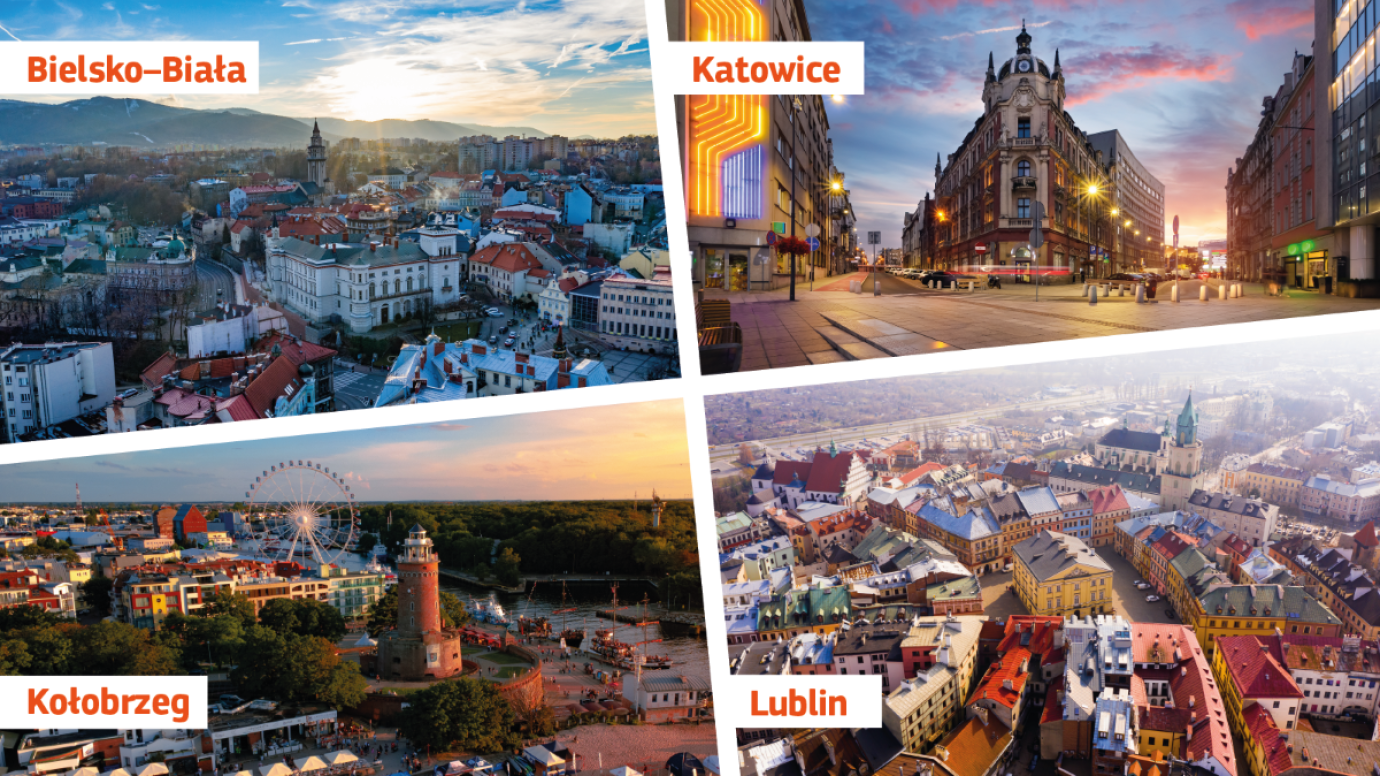Four cities short-listed for European capitals of culture 2029 in Poland
Bielsko–Biała, Katowice, Kołobrzeg and Lublin have been shortlisted in the competition for the title of European Capital of Culture 2029 in Poland.

A panel of 12 independent experts recommended the shortlist following a 5-day meeting in Warsaw. In 2029, Poland will host the European Capital of Culture for the second time, after Krakow in 2000 and Wroclaw in 2016.
Poland invited applications from interested cities in November 2022. Twelve cities submitted applications by the deadline of 15th September 2023:
- Bielsko–Biała
- Bydgoszcz
- Jastrzębie–Zdrój
- Katowice
- Kielce
- Kołobrzeg
- Lublin
- Opole
- Płock
- Pszczyna
- Rzeszów
- Toruń
Being shortlisted for the title can result in significant cultural, economic and social benefits for the cities concerned, providing that their bid is part of a longer-term culture-led development strategy.
Once the relevant Polish authorities formally endorse the panel's recommendation, the cities will have until the summer 2024 to complete their applications. The panel will then meet again in the second half of 2024 to recommend the Polish city to become the European Capital of Culture 2029.
In the same year, there will also be another European Capital of Culture, in Sweden.
How cities become European Capitals of Culture
The selection procedure has 2 rounds:
- a pre-selection round, following which a shortlist of candidate cities is drawn up
- a final selection round approximately nine months later. The selected city is then officially designated by the Member State concerned.
A panel of 12 independent experts examine the applications. The European Union institutions and bodies appoint 10 experts and the other 2, by the relevant national authorities.
The cities should prepare a cultural programme with a strong European dimension and must have a lasting impact and contribute to the long-term development of the city. The cities must also show that they have the support from the relevant public local authorities and the capacity to deliver the project.
Background
Born in 1985 from an idea of the then Greek Minister of Culture, Melina Mercouri, the European Capitals of Culture have grown into one of the most ambitious cultural projects in Europe and one of the best known – and most appreciated – activities of the EU. Their objectives are to promote the diversity of cultures in Europe, to highlight the common features they share and to foster the contribution of culture to the long-term development of cities.


